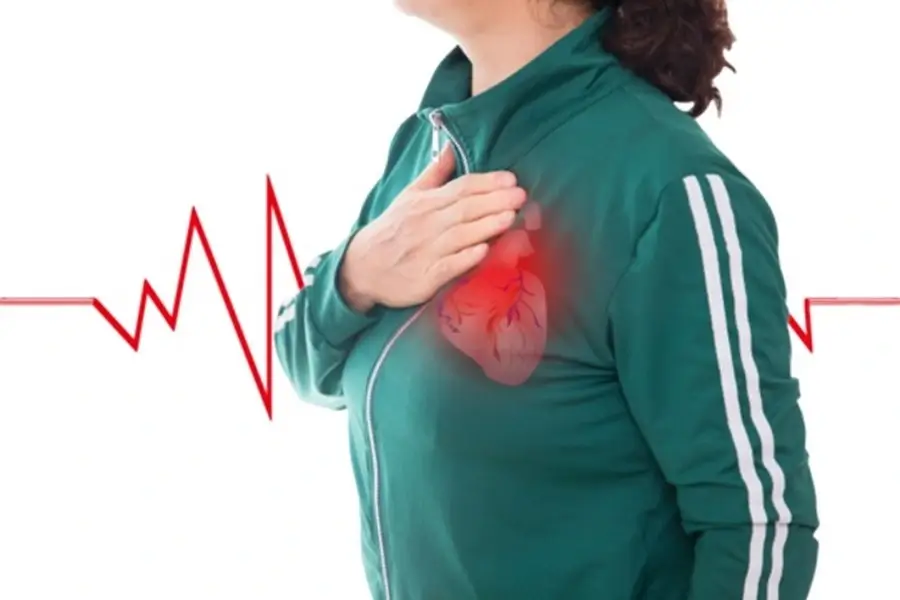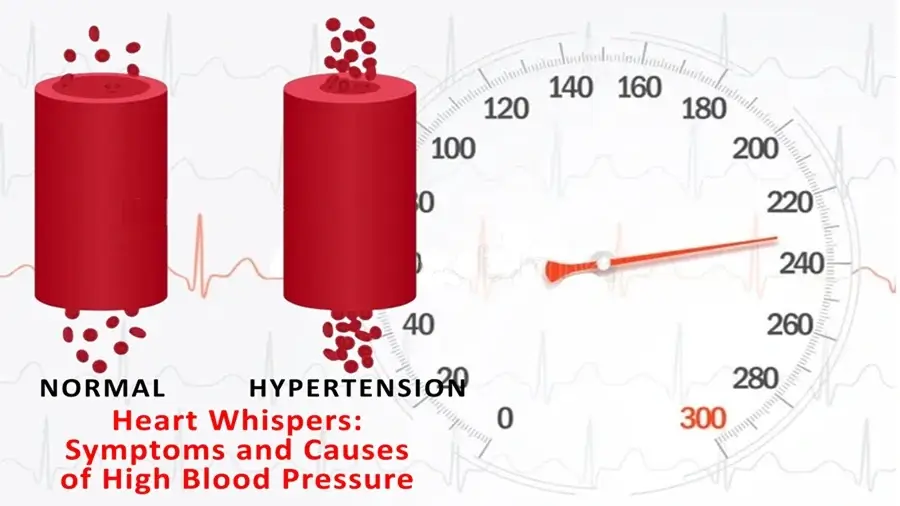
Are there any warning signs of Heart Attack (Myocardial Infarction)?
Yes, some signs can show if someone might have a heart attack, which is also called a myocardial infarction. It’s really important to notice these signs and go to the doctor as soon as possible. However, not everyone feels the same things, and some people might feel different symptoms. Women, older adults, and those with diabetes might feel things that are not common.
Before a heart attack, your body might give you signals in the days or weeks. Some people feel very tired, have trouble breathing, sweat a lot, feel like throwing up, or have pain in their chest. These signs are like a warning that a heart attack might happen. But not everyone gets these signals. Some people may have a “silent” heart attack with no noticeable symptoms, and a heart attack can happen suddenly.
So, it’s important to listen to your body and notice if anything feels strange. If you’re not sure, it’s better to be safe and see a doctor right away. When it comes to heart health, it’s always better to be safe.
How is a Heart Attack (Myocardial Infarction) diagnosed?
Diagnosing a heart attack, also known as myocardial infarction (MI), involves a combination of medical history assessment, physical examination, and various diagnostic tests. The process aims to determine if there is damage to the heart muscle and to identify the underlying cause of the symptoms.
Here’s an in-depth look at how a heart attack is diagnosed:
Medical History and Physical Examination:
- The doctor will start by asking questions about your health, like if anyone in your family had heart problems and if you have any sickness or problems. Additionally, they want to know how you feel and if you have any signs that something might be wrong with your heart.
- The doctor will also check how your body is doing by looking at some important signs. They will check your blood pressure, which is how strong your heart is working, and your heart rate, which is how fast your heart is beating. They will also listen to your heart and lungs to make sure everything sounds okay.
Electrocardiogram (ECG or EKG):
- An ECG is a key diagnostic tool for a heart attack. Electrodes are attached to the skin to measure the electrical activity of the heart.
- Changes in the ECG pattern, such as ST-segment elevation or depression, can indicate myocardial ischemia or injury, suggesting a heart attack.
Blood Tests:
- Blood tests are performed to measure specific markers released into the bloodstream when heart muscle cells are damaged. The primary markers include troponin, creatine kinase (CK), and myoglobin.
- Elevated levels of these markers can confirm the presence of a heart attack and help assess the extent of damage.
Imaging Tests:
- Echocardiogram: This test uses sound waves to create images of the heart. Moreover, it helps evaluate the pumping function of the heart and identify any abnormalities in the heart’s structure.
- Nuclear Imaging: Techniques such as myocardial perfusion imaging or single-photon emission computed tomography (SPECT) can provide information about blood flow to the heart muscle.
Coronary Angiography to Detect Possibility of Heart Attack:
- Doctors might use a special method to check the heart. They put a thin tube through the blood vessels to look at the heart’s tubes. Additionally, they use a special dye and take pictures with X-rays to see if there are any problems like blockages or narrow areas.
CT Angiography:
- Computed tomography angiography (CTA) uses X-rays to create detailed images of the coronary arteries. It can help detect blockages or plaques in the arteries.
MRI (Magnetic Resonance Imaging):
- Cardiac MRI provides detailed images of the heart’s structure and function. It can help assess the extent of damage to the heart muscle.
Doctors use different ways to check if someone is having a heart attack. They ask about the person’s health, do some tests, and look at pictures of the heart. All of these things help doctors know if there is a heart attack, how bad it is, and what kind of treatment will help. Finding out early and accurately is really important because it helps the person get better faster and stops too much harm to the heart. However, doctors use a mix of tests to make sure they know if there is a heart attack and how to help the person feel better.
How can Heart Attack (Myocardial Infarction) be Prevented?
Preventing a heart attack, also known as myocardial infarction (MI), is mainly in your hands by maintaining a heart-healthy lifestyle and managing risk factors that contribute to cardiovascular diseases. Therefore, always think of your body as a complex machine; it works best when well taken care of.
Here’s a detailed look at various strategies to prevent heart attacks:
Healthy Eating Habits to Prevent Heart Attacks:
- Balanced Diet: Eat many different fruits like apples and veggies, whole grains like brown rice, and proteins like chicken or beans. Additionally, Choose low-fat milk and cheese. Don’t eat too much of the not-so-healthy things like fried foods, sweets, and salty snacks. Eating good foods helps you stay strong and healthy.
- Portion Control: Be mindful of portion sizes to avoid overeating and maintain a healthy weight.
Regular Physical Activity:
- You don’t have to become an elite athlete right away, but finding enjoyable ways to stay active can make a significant difference.
- Play and move your body regularly to keep your heart strong and healthy. Moreover, try to have fun with activities like running, walking, or playing sports for at least 150 minutes a week. You may opt for 75 minutes of vigorous-intensity activity per week. It’s like giving your heart a workout, and it helps you stay strong and happy.
- Incorporate activities such as walking, jogging, swimming, or cycling into your routine.
Maintain a Healthy Weight:
- Keep your body mass index (BMI) within the recommended range, because it significantly reduces your risk of heart disease.
- Achieve and maintain a healthy weight through a combination of a balanced diet and regular physical activity.
- Excess body weight, especially around the abdomen, is a risk factor for heart disease.
Quit Smoking- to Avoid Early Heart Attack:
- Smoking is a significant risk factor for heart attacks. Quitting smoking is one of the most effective ways to reduce the risk.
- Seek support from healthcare professionals, support groups, or quitline services for assistance in quitting.
Manage Stress to Prevent Unwanted Heart Attack:
- Chronic stress can contribute to heart disease. Therefore, practice stress-reducing techniques such as deep breathing, meditation, yoga, or engaging in hobbies.
- Ensure sufficient sleep to promote overall well-being.
Control Blood Pressure:
- Regularly monitor and manage blood pressure. Because high blood pressure is a major risk factor for heart attacks.
- Eat less salt in your food, play and move your body regularly, and take the medicine your doctor gives you just like they say. It’s like giving your body what it needs to stay healthy and strong.
Manage Diabetes:
- Control blood sugar levels through a combination of medication, a healthy diet, and regular exercise.
- Regular monitoring and management of diabetes are crucial to reduce the risk of heart disease.
Control Cholesterol Levels:
- Keep your cholesterol levels healthy by eating good food for your heart. If needed, the doctor might give you a special medicine to help lower cholesterol. It’s like giving your heart the right kind of food to stay strong.
- Regular cholesterol screenings are essential for monitoring levels and adjusting treatment as needed.
Limit Alcohol Consumption:
- If you drink alcohol, try not to have too much. For most grown-ups, it’s okay to have up to one drink per day for women and up to two drinks per day for men. Just remember, it’s good to be careful with how much you drink.
- Excessive alcohol consumption can contribute to high blood pressure and increase the risk of heart disease.
Regular Health Check-ups:
- Schedule regular check-ups with healthcare providers to monitor overall health and address any emerging risk factors or concerns.
Also Read:
To keep your heart healthy and prevent a heart attack, you can do a few things. First, eating good food with lots of fruits and vegetables, and not eating too much of the bad stuff like sugary snacks, is a great start.
Also, it’s good to play and move your body by running, walking, or riding your bike. If you ever feel sick or have questions about your health, it’s important to talk to a doctor. They can help you know what’s best for you.
Checking in with a doctor regularly is like making sure everything in your body is okay, just like going for a check-up with your teacher. Remember, taking care of your health is important, and doctors can help you stay strong and feel good!


Pingback: Essential FAQs: Myocardial Infarction and Heart Attack Symptoms Simplified - Body Mysteries
Pingback: Myocardial Infarction OR Heart Attack: What is the difference?